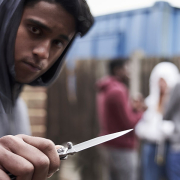A Summer Day Shattered – Southport’s Tragedy

On a bright July morning in 2024, a small dance studio in Southport rang with laughter and pop music. Two dozen children twirled in tutus and sneakers at a Taylor Swift-themed dance workshop, friendship bracelets and giggles abound. In one corner, Bebe King beamed as she mastered a new move; nearby, Elsie Dot Stancombe and Alice da Silva Aguiar whispered excitedly about their routine. None could have imagined the nightmare about to unfold.
Without warning, that joy was pierced by screams. A teenager – 17-year-old Axel Rudakubana lunged into the studio wielding a kitchen knife, turning the innocent dance class into a scene of horror.
He attacked with frenzied intent, stabbing anyone in reach. Panicked children tried to hide or run, but the blade found many of them. By the time police wrestled Axel down, three little girls lay fatally wounded and ten other people were injured.
Bebe and Elsie died there on the studio floor; Alice, gravely hurt, passed away the next day despite doctors’ efforts. In minutes, a day of joy had become one of unimaginable heartbreak.
The aftermath left families and a community devastated. “Our dream girl has been taken away in such a horrible, undeserving way that it shattered our souls,” Alice’s family would later say in a statement, each word heavy with grief. “We’re heartbroken that we can never help Alice fulfil her dreams… The simple joys of life can no longer be enjoyed because it feels like there’s no point,” her parents wrote, mourning the lost chance to ever again hold their daughter, brush her hair, or see her smile.
In the same courtroom, Elsie’s family vowed through tears that although an act of premeditated evil had stolen their child, “you will not take away our determination to honour her memory. They found a sliver of solace knowing the killer would never be free to hurt another innocent soul.
Yet no punishment could fill the absence of those bright, beautiful girls. The heartbreak was immeasurable, three young lives full of promise, cut short in the most brutal way.
As the town of Southport grappled with shock, fear and fury ignited on a broader scale. Within a day of the attack, before the killer’s identity was even made public, misinformation flooded social media.
False rumours insisted the perpetrator was a Muslim asylum seeker, lighting the fuse of prejudice and rage. That very night, protests erupted; anger spilled into the streets and bystanders watched in dismay as a local mosque’s windows were shattered by vandals.
In the days that followed, what should have been a period of national mourning and unity instead saw riots spread across the country, hijacked by anti-immigrant sentiment and online hate. For many in the Muslim and immigrant communities, it was a second victimisation innocent people living in fear as bigots took out their wrath on them.
The country seemed to lose sight of the real tragedy: three children were dead, and this shared heartbreak should have brought people together, not torn them further apart. It was a missed opportunity for unity, squandered by those who chose outrage over compassion.
Only later did the fuller picture of Axel’s story emerge, raising painful questions of what warnings had been missed. Axel Rudakubana had no political or religious motive at all. Investigators found he simply wanted to commit mass murder as an end in itself.
In fact, chillingly, police discovered he had been preparing for violence: at his home they uncovered a makeshift lab with the poison ricin and even a copy of an extremist training manual. It turned out Axel’s troubled behaviour had raised red flags before.
He had been referred three times to the government’s anti-extremism Prevent program between 2019 and 2021 due to his violent tendencies, but each time officials decided he did not qualify. He had no clear ideology, just disturbing behaviour. This loophole meant Axel never received deradicalisation intervention. Only after the blood was shed did authorities acknowledge the gap: “non-ideological” killers had slipped through the cracks of a system focused only on terrorism.
Britain’s prime minister at the time vowed to reform the law so that future threats could be caught in time. It was scant comfort to the families of Bebe, Elsie, and Alice. But perhaps, amid the heartbreak, this realisation was a small seed of hope that changes born of tragedy might prevent the next Axel from acting on his dark impulses. In that sense, society sought a form of redemption: to learn from horrific loss and fix what could have been done better, honouring the girls’ memory by trying to save others.
Let’s close the gaps together.
Refer a case and we will connect your family with mentoring, dinner‑club engagement and resource‑link support, fast.





